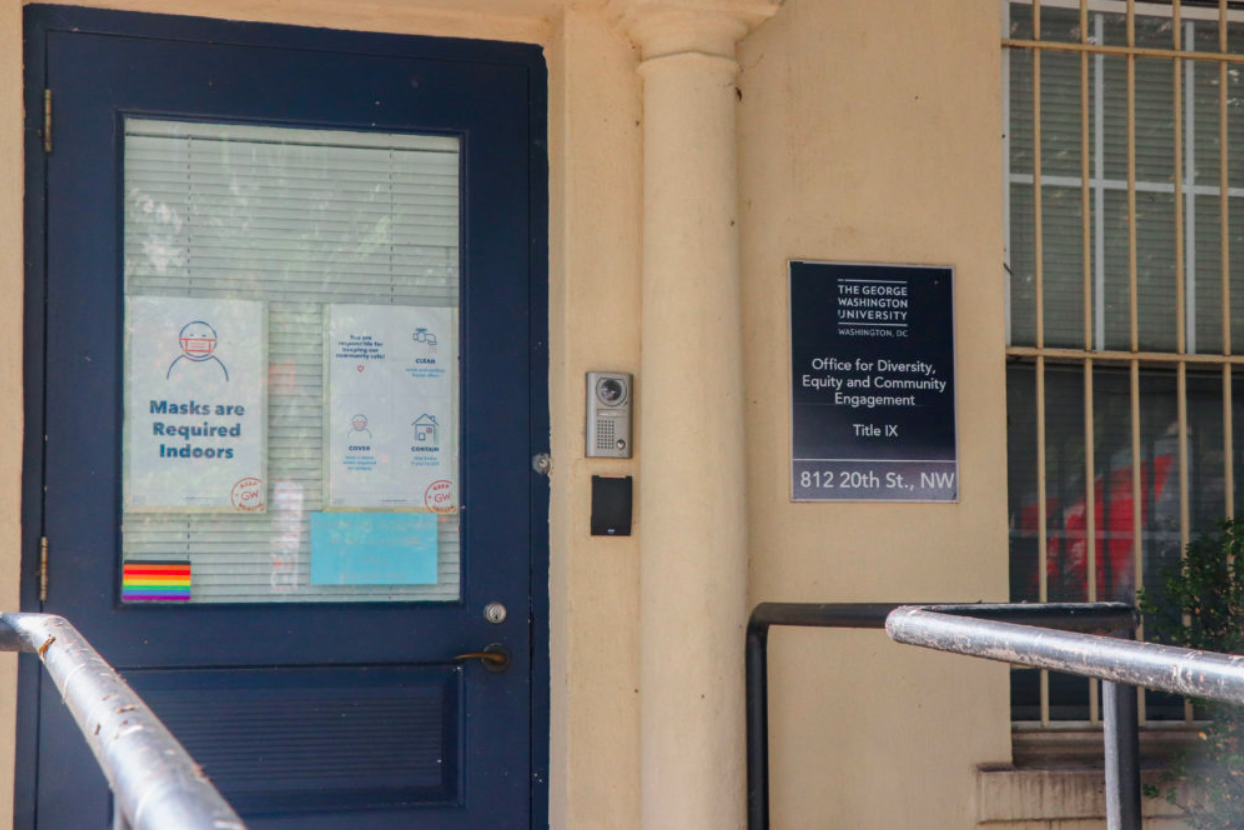Trigger Warning: S.A.
By Evelynn Schoenthal
Undergraduate college women are three times more at risk of experiencing sexual assault than all women. One in five women and one in 16 men are sexually assaulted in college. Students who are black, disabled, and in the LGBTQ+ community are at a higher risk of sexual assault on campuses. Sexual violence occurs frequently on college campuses nationwide, but only 10% of incidences are reported.
These statistics are unsettling, and it’s important to understand why many incidents go unreported. The three most common reasons why victims didn’t report were that they thought they could handle it themself, they didn’t think their experience was serious enough to contact resources, and the weight of the embarrassment and shame they would feel from doing so. Another study cited that the most common barrier to reporting an assault is “not knowing how to report the incident.”
GWU has many resources and policies concerning sexual assault. GWU’s policies around sexual misconduct, harassment, and assault are applicable to all faculty, staff, students, volunteers, and participants of the university programs and activities on and off campus. People can file a report against anyone; it does not require the individual to be named or an investigation to be opened. It’s up to the individual how they want to proceed.
Reports can be submitted through the GW Title IX website. Once submitted, the individual will be contacted by a Title IX staff member within 24-72 business hours to set up a meeting to discuss the incident, possible accommodations, and future support that can be provided.
The second way to receive support is through the Office of Advocacy and Support, a campus partner. They offer trauma-informed and healing-centered confidential support to students impacted by sexual misconduct, relationship violence, and stalking. The OAS is confidential and the university will not be involved unless the individual gives explicit permission.
The Colonial Health Center (CHC) provides screening for illness, pregnancy, and injury without insurance billing or sending documentation to one’s insurance company. Although neither the CHC nor GW Hospital provides rape kits, EMeRG provides free transportation to the Washington Hospital Center so victims of sexual assault can receive a rape kit. Rape kits are free of charge under the Violence Against Women Act and never have to be brought to the police. The kit will be safely stored whether an individual decides to come forward or not.
Sexual misconduct, harassment, and violence are never the victim’s fault, only the perpetrator’s. It’s important to know the resources available for victims so they can receive the proper resources and support they need without shame or fear.

